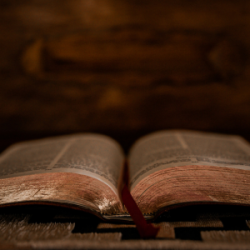
Our reading this week is Luke’s version of what many Christians call the Lord’s Prayer:
One day Jesus was praying in a certain place. When he finished, one of his disciples said to him, “Lord, teach us to pray, just as John taught his disciples.”
Welcome Readers! Please subscribe to Social Jesus Here.
This is Part 1 of A Prayer For Liberation
He said to them, “When you pray, say:
“Father, hallowed be your name,
your kingdom come.
Give us each day our daily bread.
Forgive us our sins,
for we also forgive everyone who sins against us.
And lead us not into temptation.”
Then Jesus said to them, “Suppose you have a friend, and you go to him at midnight and say, ‘Friend, lend me three loaves of bread; a friend of mine on a journey has come to me, and I have no food to offer him.’ And suppose the one inside answers, ‘Don’t bother me. The door is already locked, and my children and I are in bed. I can’t get up and give you anything.’ I tell you, even though he will not get up and give you the bread because of friendship, yet because of your shameless audacity he will surely get up and give you as much as you need.
“So I say to you: Ask and it will be given to you; seek and you will find; knock and the door will be opened to you. For everyone who asks receives; the one who seeks finds; and to the one who knocks, the door will be opened.
“Which of you fathers, if your son asks for a fish, will give him a snake instead? Or if he asks for an egg, will give him a scorpion? If you then, though you are evil, know how to give good gifts to your children, how much more will your Father in heaven give the Holy Spirit to those who ask him!” (Luke 11:1-13)
This prayer begins by referring to God as “Father.”
I believe that this version of the Lord’s prayer isn’t defining God’s gender as much as it defines the role Luke’s community believed God played in the affairs of the world. They understood God through the paradigm of their own world view at that time. Many of us today have come to understand that it is problematic to only allow the male gender to be represented in the Divine. In keeping with the parental nature of “father” today, prayers like the one Jesus prayed could just as accurately in our culture be addressed to “Mother/Father” God. In that time, a householder or a parental provider made sure everyone in the family had what they needed to thrive. Today, in our world that role could be a mother, a father, both, or more, depending on the nature of the family one belongs to.
The first request in Jesus’ prayer sets the tone for everything else that follows. We’ll pick up there in Part 2.
Are you receiving all of RHM’s free resources each week?
Begin each day being inspired toward love, compassion, justice and action. Free.
Sign up at HERE.














